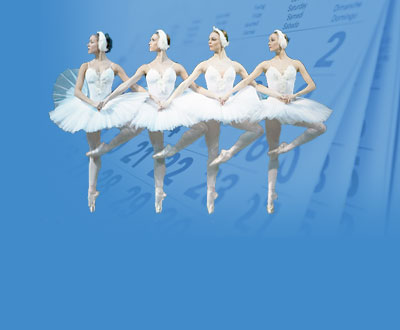Calendario de todos los teatros de San Petersburgo en una sola página >>
Por favor, introduzca el nombre del teatro, el nombre del actor o cualquier otra palabra clave
Don Carlo (Mariinsky II (New) Theatre, opera) - 29 diciembre 2026 a las 19:00
Teatro Mariinski II (Nueva Escena) Mas informacion | Precio: 199,86 - 386,39 USD
Género: Idioma: Italian Restricción de edad: 12+
Credits
Music by Giuseppe Verdi
Libretto by Joseph Méry and Camille du Locle after the play of the same name by Friedrich von Schiller
Musical Director: Valery Gergiev
Stage Director: Giorgio Barberio Corsetti
Set Designers: Giorgio Barberio Corsetti and Cristian Taraborrelli
Costume Designers: Cristian Taraborrelli and Angela Buscemi
Lighting Designer: Fabrice Kebour
Lighting Adaptation for the Mariinsky II by Alexander Sivaev
Video Projection Designers: Luca Attilii and Fabio Iaquone
Choreography: Roberto Aldorasi
Musical Preparation: Alla Brosterman
Principal Chorus Master: Andrei Petrenko
Artists
Featuring Irina Churilova and Ekaterina Semenchuk
Full cast to be announced at a later date
Libretto by François-Joseph Méry and Camille du Locle after the play of the same name by Friedrich von Schiller Original Italian translation by Achille De Lauzières, revised by Angelo Zanardini
Synopsis
In 1556, the Emperor Charles V abdicated, celebrated his own funeral and retired to the monastery of San Jeronimo at Yuste. His son Philip II is now on the throne of Spain. To seal the peace between France and Spain after a long war, Philip marries Elisabeth of Valois, who has long been betrothed to his son Don Carlo.
Act I
Scene 1
The cloister of the Yuste monastery
Monks meditate by the tomb of Emperor Charles V, Don Carlos’ grandfather. Carlo is startled by the resemblance of one of the monks to Charles V. He is joined by his dearest friend Rodrigo, the Marquis of Posa, who has just returned from Flanders; Posa paints a grim picture of the oppression it suffers, and when he hears of Carlo’s love for Élisabeth he urges Carlos to go to Flanders and ease the suffering of the people and cure himself of his criminal passion. They renew their vows of fellowship in the service of liberty.
Scene 2
Outside the Yuste monastery gates
Tebaldo, Eboli and the ladies of the Court take shelter from the heat and pass the time singing. The Queen joins them, followed by di Posa who delivers two letters, one from her father and the other from Carlo. As Élisabeth reads, Rodrigo engages Eboli in gallantries. He asks the Queen for an audience with the Infante to whom the King has been rather cool. Eboli imagines Carlo may be in love with her. Carlo appears and, dismissing her attendants, Élisabeth struggles to remain calm; she agrees to help persuade the King to send his son to Flanders. Carlo, however, is unable to resist and declares his ardent love for her. After Don Carlo departs King Filippo enters. Finding the Queen unattended and alone, something inadmissible for Court etiquette, the furious Filippo orders the guilty lady-in-waiting, the Countess d’Aremberg, back to France; Élisabeth bids her farewell sadly. Di Posa is summoned by the King and seizes the opportunity to protest about the plight of Flanders; he urges him to give the people their freedom. Impressed by di Posa’s integrity and sincerity, Filippo warns him to be wary of the Grand Inquisitor and confides his worries about Carlo and Élisabeth, asking him to keep watch on them.
Act II
Scene 1
A sheltered grove in the Queen’s gardens
At midnight Don Carlo, who has received an anonymous message and believes it to be from the Queen, strolls in the garden. Someone dressed as the Queen appears. The young man ardently declares his passion, but falls silent when he realises it is Eboli in disguise. When Eboli realises that his declarations were not intended for her she wrathfully promises to have her revenge on both. She threatens to tell Filippo about the Infante’s criminal love for the Queen. Carlo is assisted by Rodrigo. He threatens to kill Eboli, but the Princess cannot be placated. Rodrigo asks Carlo for all the documents that compromise him.
Scene 2
The piazza in front of the Valladolid Cathedral
Flemish Protestants are being burnt on the square, heretics in the eyes of the Catholic church. A throng of people, gathered to view this cremation, sings the King’s praises. Carlo comes to Filippo with a deputation from Flanders and Brabant: the Flemish beg Filippo to show clemency, a prayer in which the Queen, di Posa and most of the crowd join; but Filippo’s persecuting obduracy is encouraged by the monks. Carlo now demands that his father entrust to him the regency of Flanders; when Filippo dismisses the request, the Infante draws his sword and vows to be the saviour of unhappy Flanders. All are scandalised. Di Posa disarms Carlo and is elevated to the rank of Duke by Filippo in thanks. The auto-da-fé continues; a heavenly voice is heard comforting the dying.
Act III
Scene 1
The King’s chambers in Valladolid
Filippo muses wretchedly over his failure to win Élisabeth’s love. The Grand Inquisitor is led in; he assures the King that, if it is for the good of the faith, there can be no objection to having Carlo killed. But Rodrigo, he believes, represents a greater danger, and if Filippo persists in protecting a heretic he will have to answer for it to the Holy Church. Élisabeth runs in in confusion; her jewel box has been stolen. Suddenly she sees it on the King’s table. Élisabeth refuses to open it and then Filippo forces it himself to discover a portrait of Carlo among her treasures. He denounces the Queen as an adulteress and she faints.
At the King’s summons Eboli and Rodrigo enter; he realises that immediate action must be taken. Left alone with the Queen, Eboli admits her love of Don Carlo and says it was she who stole the jewel casket. She begs forgiveness. The Queen banishes her from the Court: she must choose exile or the cloister. Eboli curses her own beauty; before taking leave of the world she resolves to save Carlo.
Scene 2
Carlo’s prison cell
The Marquis di Posa enters. He says he has accepted Carlo’s guilt as his own and declared the Infante’s secret papers, found on the former, to be his. The Marquis bids his friend farewell and encourages him again in his mission to free Flanders. Two men appear at the cell door and Rodrigo is shot. As he dies, he tells Carlo that Élisabeth will be at Yuste the next day. The King enters and states that Carlo has been declared innocent, but his son repels him. The clanging of the tocsin signals a popular uprising: for a moment Filippo seems to be in danger, but the appearance of the Grand Inquisitor reduces the mob to submission. Meanwhile Eboli enables Carlo to make good his escape.
Act IV
The Cloister at Yuste
Élisabeth recognises that her earthly mission will soon be over. Carlo comes to bid farewell to his beloved; Élisabeth blesses his Flanders mission, and they look forward to meeting again in a better world. The King appears, attended by the Grand Inquisitor and his officers; Carlo is anathematised. As he tries to evade the inquisition he retreats towards Charles V’s tomb, which suddenly opens up; a monk appears and is recognised as the late Emperor. He hurries Carlo away into the monastery.
Imágenes


 en
en es
es







